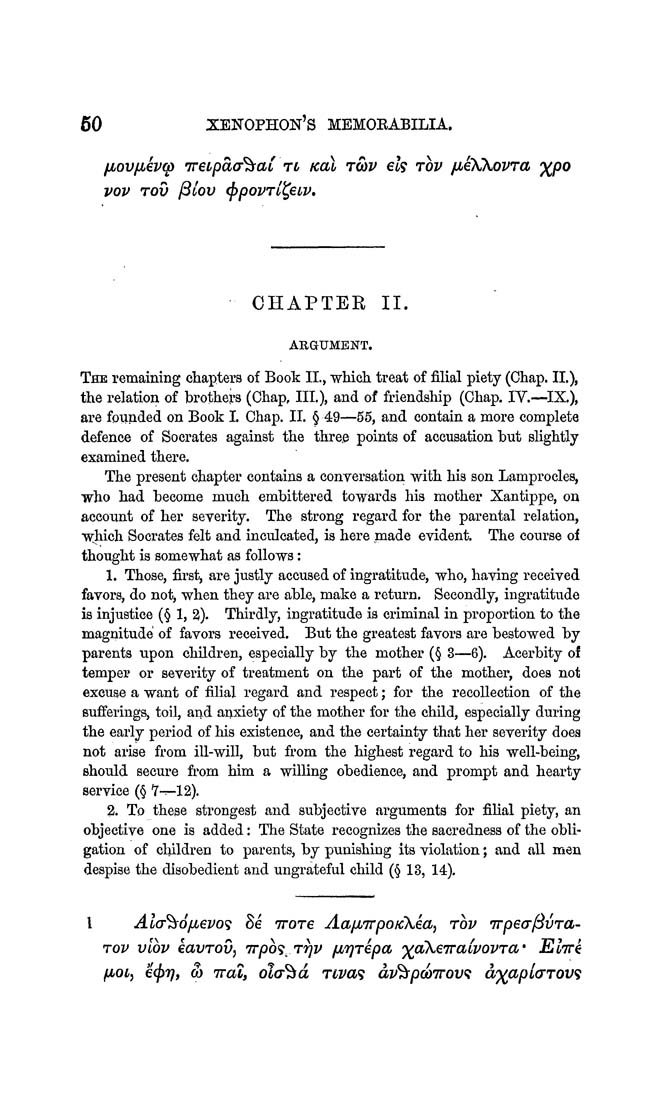go xenophon's memorabilia.
pbovptevcp TTetpda^ai Tt Kal tSov eis tov pteXXovTa xpo
POV TOV ^iov cppovTi^etv,
CHAPTER II.
ARGUMENT.
The remaining chapters of Book II., which treat of filial piety (Chap. II.),
the relation of brothers (Chap, III.), and of friendship (Chap. IV.—^IX.),
are founded on Book I. Chap. II. § 49—55, and contain a more complete
defence of Socrates against the three points of accusation but shghtly
examined there.
The present chapter contains a conversation with his son Lamprocles,
who had become much embittered towards his mother Xantippe, on
account of her severity. The strong regard for the parental relation,
which Socrates felt and inculcated, is here made evident. The course of
thought is somewhat as follows:
1. Those, first, are justly accused of ingratitude, who, having received
favors, do not, when they are able, make a return. Secondly, ingratitude
is injustice (§ 1, 2). Thirdly, ingratitude is criminal in proportion to the
magnitude of favors received. But the greatest favors are bestowed by
parents upon children, especially by the mother (§ 3—6). Acerbity of
temper or severity of treatment on the part of the mother, does not
excuse a want of filial regard and respect; for the recollection of the
sufferings, toil, and aijxiety of the mother for the child, especially during
the early period of his existence, and the certainty that her severity does
not arise from ill-will, but from the highest regard to his well-being,
should secure from him a willing obedience, and prompt and hearty
service (§ 7-^12).
2. To these strongest and subjective arguments for filial piety, an
objective one is added: The State recognizes the sacredness of the obli¬
gation of children to parents, by punishing its violation; and all men
despise the disobedient and ungrateful child (§ 18, 14).
I Ala^opbevos Se TTOTe AapbTTpoKXea, Tbv TTpea/Sma-
Tov vlbv eavTov, TTpbs, Tyv pbyTepa ;)^aXe7raw/oz^Ta • EItt^
ptot, ecpy, ft) TTal, ola^d Ttvas dv^pcoTTovs dxctplaTOVS
|








